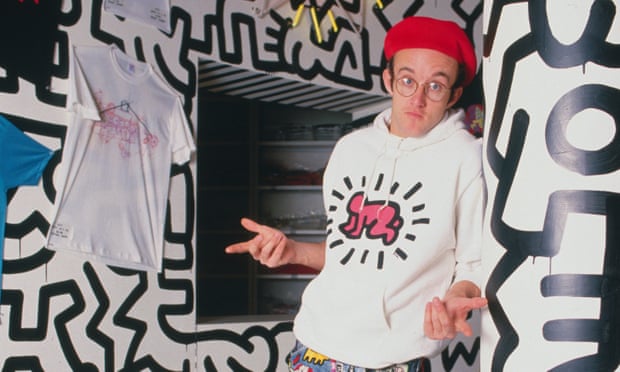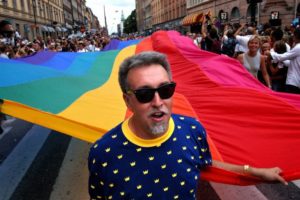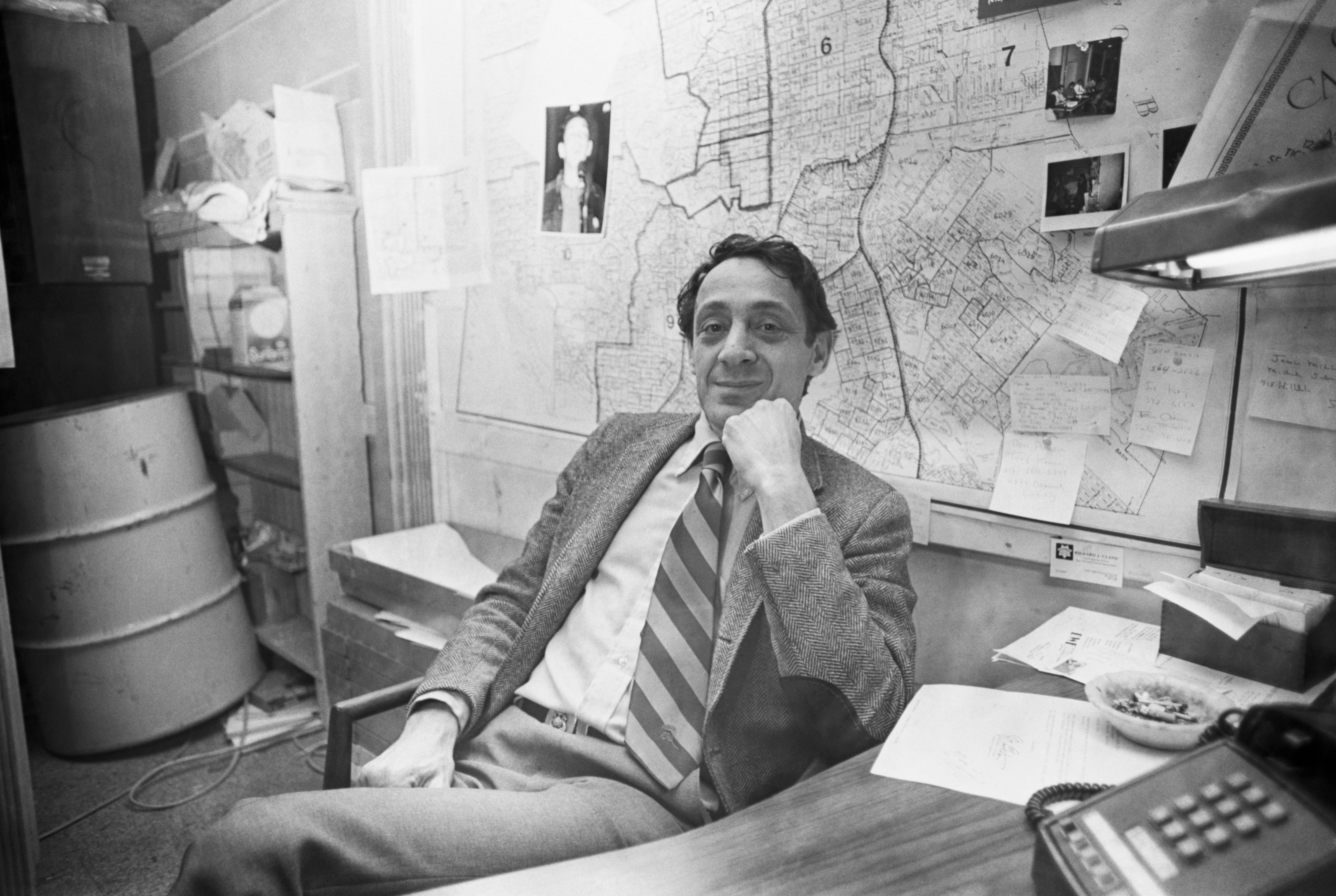Timeline
This is a very basic timeline of people, events and media from queer history. This is by no means complete, but I am planning on adding more points and information later. This timeline also focuses mostly on Canadian and U.S. history, but if you have information from other countries I will gladly add it. Readers are encouraged to do more research on the topics listed below. Click on the name of the person or event to see more information.
Gay Marriage in Estonia (2023) Blake Desjarlais (2021) Luke Prokop (2021) Gay Marriage in America (2015) Laura Jane Grace (2012) Gay Marriage in Canada (2005) Bill Siksay (2004) Monica Helms (1999) Shinjuku Boys (1995) Billie Joe Armstrong (1995) Brandon Teena (1993) Leslie Feinberg (1993) Paris is Burning (1990) Larry Kramer (1987) Egale Canada (1986) Lou Sullivan (1986) Operation Soap (1981) Keith Haring (1980s) Gilbert Baker (1978) Harvey Milk (1977) Rocky Horror Picture Show (1975) The ArQuives (1973) John Waters (1970s) The Body Politic (1971) Everett Klippert (1969) Stonewall Riots (1969) Christine Jorgensen (1952) Magnus Hirschfeld (1910)Gay Marriage in Estonia (2023)
On June 20, 2023, marriage between people of all genders was legalized in Estonia. Same-sex relationships have been recognized in Estonia since 2016, but queer couples could not get married or adopt children until the country's Family Law Act was ammended. The law does not come into effect until January 1, 2024.
Blake Desjarlais (2021)
Blake Desjarlais is the first openly two-spirit Member of Parliament in Canadian history. He assumed office on September 20, 2021.
Luke Prokop (2021)
Luke Prokop is the first NHL player to come out as gay while under contract with a team. He came out publicly in 2021.
Bill C-16 (2017)
In June of 2017, Bill C-16 was passed. The bill ammended the Canadian Human Rights Act and the Canadian Criminal Code, adding protections from discrimination, harrassment and hate speech on the grounds of gender identity and expression.
Gay Marriage in America (2015)
Gay marriage was legalized in the United States on June 26, 2015. The Supreme Court vote was 5-4 in the case of Obergefell vs. Hodges, which meant that state bans on same-sex marriage were ruled unconstitutional.
Laura Jane Grace (2012)
As the lead singer and guitarist of the band Against Me!, Laura Jane Grace became one of the first highly visible transgender musicians after she publicly came out in 2012. Grace has written many songs about her experience as a transgender woman, and has written a memoir called Tranny that details her experiences with gender dysphoria and transphobia.
Gay Marriage in Canada (2005)
In 2005, the Civil Marriage Act made it so same-sex couples could get married across Canada. Certain provinces had already legalized gay marriage, it had been legal in both Ontario and British Columbia since 2003, but the act allowed same-sex couples to marry in any province.
Bill Siksay (2004)
Bill Siksay was the first openly gay non-incumbent man elected to Canada's House of Commons, every queer MP who was in office before him had come out publicly after they had been elected. Siksay focused on increasing protections for members of the LGBTQ+ community, introducing a bill in 2005 to ammend the Canadian Human Rights Act to better protect transgender and transsexual people in Canada.
Monica Helms (1999)
Monica Helms is the creator of the transgender pride flag. She made the design in 1999.
Shinjuku Boys (1995)
Shinjuku Boys is a Japanese film that documents the lives and experiences of three “onabes," Gaish, Tatsu, and Kazuki. The word onabe can be used to describe a person who was assigned female at birth, but lives as a man.
Billie Joe Armstrong (1995)
The frontman of rock band Green Day, Armstrong came out as bisexual in 1995. He has written multiple songs about his sexuality, one notable song being Coming Clean from Green Day’s 1994 album Dookie, which talks about his experience coming out to his family as a teenager.
Brandon Teena (1993)
Brandon Teena was an American transgender man who was raped and murdered. The story of his murder was made into the plot of the 1999 film Boys Don't Cry.
Leslie Feinberg (1993)
Leslie Feinberg was an American author and activist. Zie/she was an outspoken advocate for transgender rights, with hir/her book Trans Liberation: Beyond Pink or Blue sharing hir/her own experiences and struggles as a transgender lesbian. In 1993, zie/she wrote hir/her most well known book, Stone Butch Blues.
Paris is Burning (1990)
Paris is Burning is a film that documents New York's ballroom scene during the late 1980s. The film focuses on interviews from members of New York's queer community, sharing their stories and explaining how the ballroom culture of the 80s could give queer people a sense of family and belonging.
Larry Kramer (1987)
Larry Kramer was an American playwright and activist. Kramer helped form ACT UP, an organization that seeked to awareness about the AIDS crisis hitting the gay community in the 1980s. ACT UP held several large protests, the most notable being the groups' demonstration in the New York Stock Exchange in an attempt to pressure the pharmaceutical company Burroughs Wellcome into lowering the price of the HIV treatment AZT.
Egale Canada (1986)
In 1986, Les McAfee founded EGALE, which stands for Equality for Gays and Lesbians Everywhere.
Lou Sullivan (1986)
An American author and activist, Sullivan founded FTM International in 1986, an organization that helped trans men access gender-affirming care. He also wrote books that shared the lives of other trans men, one being From Female to Male: The Life of Jack Bee Garland, which documented the life of an obscure queer trans man.
Operation Soap (1981)
On February 5, 1981, several bathhouses in Toronto were raided by police officers. These raids sparked protests throughout Toronto, eventually leading to the creation of the city's annual pride parade. This event is sometimes called "Canada's Stonewall," as the protests stemming from the raids inspired members of the queer community across Canada to start their own protests or pride events.
Keith Haring (1980s)
Keith Haring was an American artist, whose works were influenced by his experiences as a queer man living through the AIDS crisis.

Gilbert Baker (1978)
Gilbert Baker created the original 8-striped rainbow flag in 1978. In 1979, he changed the flag to the 6-striped version commonly used today, as bright pink and blue fabrics were not widely available.

Harvey Milk (1977)
Harvey Milk was the first openly gay man elected to public office in California, and one of the first openly gay people in public office in American history. On November 27, 1978, Milk was assassinated.

Rocky Horror Picture Show (1975)
Rocky Horror Picture Show is a musical comedy horror film. It features the character Dr. Frank-N-Furter (played by Tim Curry), a transvestite. This film is considered a cult classic, and holds a large queer following to this day.
John Waters (1970s)
John Waters is an American filmmaker who has made many notable queer films. Waters' early works, such as Pink Flamingos and Female Trouble, were gaudy and bizzare, showcasing drag queens and over the top violence.
The Body Politic (1971)
The Body Politic was a queer magazine based in Toronto that ran from 1971 to 1987. The magazine was one of the first significant queer publications in Canada, and it documented many important events in Canadian queer history such as Operation Soap.
Stonewall Riots (1969)
On June 28, 1969, police officers raided the Stonewall Inn, a gay club in Greenwich Village in New York City. The event lit a fire within New York's queer residents, with members of the community, especially lesbians and trans women of colour, rioting and protesting days after the raid. Stonewall is often cited as the start of the LGBTQ+ rights movement, and many of the activists involved in the riots are now prominent figures in queer history, such as Marsha P. Johnson and Sylvia Rivera.
Christine Jorgensen (1952)
Christine Jorgensen was an American transgender woman who became famous for undergoing gender reassignment surgery. She intended to keep her gender identity secret, but in December of 1952 photos were shared of her before and after transitioning.
Magnus Hirschfeld (1910)
Magnus Hirschfeld was a German physitian who coined the term transsexual in 1910. Hirschfeld founded the Institut für Sexualwissenschaft, the first known clinic for transgender healthcare.